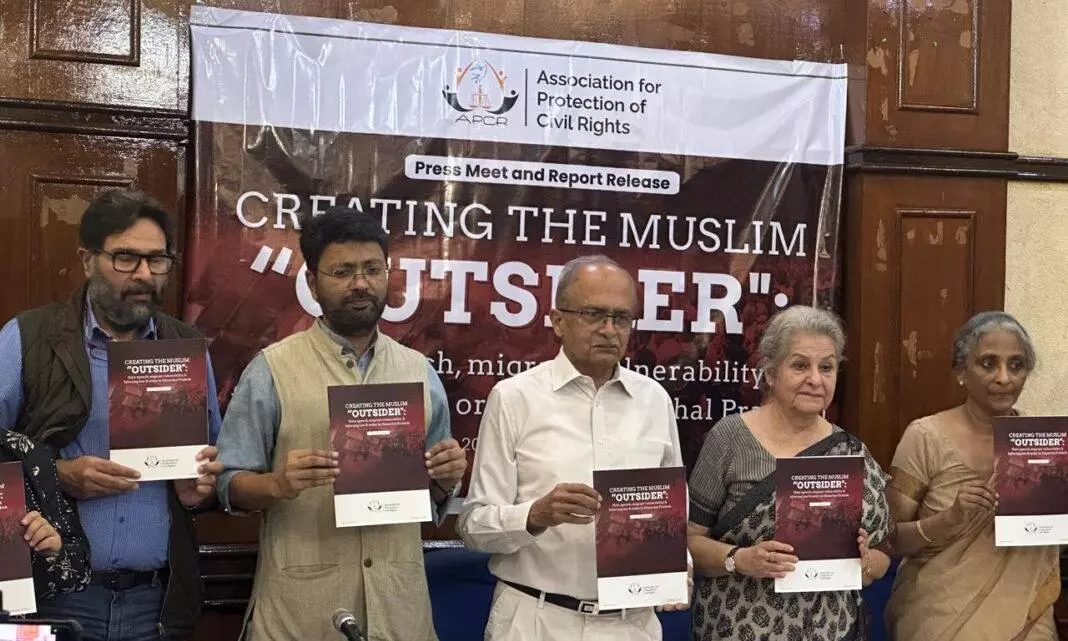
Creating the Muslim ‘Outsider’: Fact-finding report on Himachal Pradesh
text_fieldsIn a conference held at the Press Club of India on October 22, the Association for Protection of Civil Rights (APCR) unveiled a comprehensive fact-finding report that underscores the alarming breakdown of law and order in Himachal Pradesh.
The report, titled “Creating the Muslim ‘Outsider’: Hate Speech, Migrant Vulnerability, and Faltering Law & Order in Himachal Pradesh,” highlights the increasing vulnerability of migrant communities and the escalation of communal tensions across various regions, including Shimla, Sanjauli, Mandi, Solan, Kullu, and Palampur.
The press conference attracted a diverse group of attendees, including prominent human rights advocates, legal experts, journalists, and concerned citizens, all united in their call for urgent dialogue and resolution. Among the notable participants were Supreme Court advocates, activists, and journalists, who expressed their deep concern over the situation in the state.
The APCR report documents a series of disturbing incidents that reflect the deteriorating climate of communal harmony. Observations were shared about specific areas, particularly Sanjauli, where heightened tensions have led to the destruction of a mosque, illustrating the dire circumstances faced by local Muslim communities.
The report also indicated that Muslims in Himachal Pradesh are increasingly subjected to discriminatory practices, such as being asked to present character certificates from their native states.
The conference also addressed the alarming rise of right-wing groups targeting individuals advocating for civil rights. Reports surfaced of threats and harassment faced by journalists and activists, including incidents where false allegations were circulated against them. This has raised serious concerns about the safety of those speaking out against communal violence.
Former Shimla Deputy Mayor Tikender Pawar condemned the inflammatory rhetoric of certain state ministers, highlighting the political dynamics contributing to the rising tensions. Connections were drawn between the ongoing communal discord and the forthcoming Haryana elections, suggesting that political parties may be exploiting these tensions for electoral gain.
Legal experts voiced their concerns about the broader implications of communalism in Indian politics. The report calls attention to how both the ruling party and the opposition have failed to address the issue adequately, perpetuating a cycle of communal strife. This has led to calls for introspection within political parties, urging them to distance themselves from communal elements that threaten national unity.
Syeda Hameed, a prominent activist, emphasized the growing marginalization of Muslims in India, underscoring the urgent need for civil society to intervene before the situation deteriorates further. The APCR’s condemnation of the orchestrated violence reflects a broader concern about the increasing normalization of such incidents in the country.
The organization has vowed to continue advocating for the rights of those unjustly targeted, calling for collective action from civil society, the judiciary, and the international community. The report serves as a stark reminder of the pressing need to confront rising communal tensions and ensure the protection of vulnerable communities in Himachal Pradesh and beyond.






















